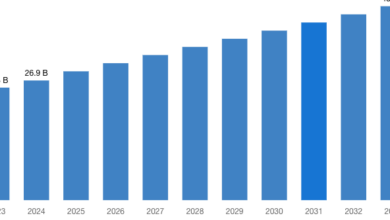Iowa’s economic recovery poses challenges/opportunities for state’s small businesses

(The Center Square) – A net 18% of small business owners said they plan to create new jobs in the next three months, according a February 2021 survey conducted by the National Federation of Independent Business.
The survey included responses from 678 businesses, including some Iowa businesses, NFIB Senior Media Manager Emily Carlson told The Center Squarel.
On the national level, 33% of businesses have openings for skilled workers (up five points) and 16% have openings for unskilled labor (up four points) and 40% of owners reported job openings they could not fill in the current period, up seven points from last month, according to the NFIB survey.
Additionally, 56% of small business owners reported hiring or trying to hire in February, which is up five points from January 2021.
Matt Everson, National Federation of Independent Business State Director in Iowa, said that Iowa’s economy is returning to a familiar problem as the economy opens back up – finding qualified workers to fill job openings so that small businesses can continue to grow.
“This report is really good news that people are hiring again and that workforce is becoming an issue again, which means is on the right track for recovery,” Everson told The Center Square.
Everson said that prior to the pandemic, the NFIB was working on licensing reform in Iowa that “sort of brought down the barriers” for employees to join new industries without “the red tape” or “big costs” of government. He said encouraging people to move to Iowa will also help.
“Our population has been pretty stagnant for the last couple of decades,” Everson said.
Lisa Shimkat, state director of America’s Small Business Development Center-Iowa, said retailers have gained confidence in making online sales, such as through Shop Where I Live’s Shop Iowa website, which provided a “shot in the arm” for the retail sector in the state.
Still, there has been uncertainty among some small businesses in how to best work with companies, such as with navigating the transition from masking to not masking, and there is substantial uncertainty in what the future holds, she said.
“So we have to flip the business model and look at today and where do we need to position moving forward,” Shimkat told The Center Square. “It’s more of a strategic, based on assumptions, versus ‘Here’s what it could be and what will be and now we’re going to move backwards.’”
Labor costs and wages are also reportedly increasing. Seasonally adjusted, nationally, a net 25% of firms reported raising compensation and a net 19% plan to do so in the coming months. Nine percent cited labor costs as their top business problem (up two points) and 24% said that labor quality was their top business problem (up three points and the top overall concern).
Shimkat urged Iowans to support their local businesses.
“We are a very rural state, and these rural businesses have been challenged,” she said. “This is where we as consumers really need to step up to the plate to say, ‘You know what, I’m going to shop local. I’m going to visit that local business. I’m going to support them.’ They are part of our community. … We need consumers to step and really make a concerted effort to support these small businesses to help get through that last hurdle.”
Everson also said that the Iowa’s farm economy is “bouncing back.”
Average cash soybean prices rose to $11.30 per bushel and average cash corn prices are back up to $4.40 per bushel, which are the highest prices seen since the summer of 2014, according to Iowa State University Extension and Outreach’s AG Decision Maker.
“I think Iowa’s going to be a really, really good position coming out of this, but again, I caution, it’s super fragile, obviously. We still got an entire industry – entertainment, bars, restaurants, events, movie theaters – that are still really, really struggling, and we need to keep pressing forward with smart financial decisions for our state so that we encourage that economy to come back.”
Everson said he hopes live concerts will come back by the end of 2021.
The impact of COVID-19 on the future workforce – students who will be graduating soon from community college and universities – and the “unique perspective” the pandemic has given them in their outlook on how to perform job roles presents possibilities for the state, Shimkat said.
“We really need to look at the possibilities and not focus on the things that really hindered us for our economy but look forward to where we can position our businesses, where we position our communities and where we position our state. And I think that’s going to make us more competitive, and we’re going to be able to have some great jobs out there and we’re going to pull those applicants in from all over.”
Disclaimer: This content is distributed by The Center Square


